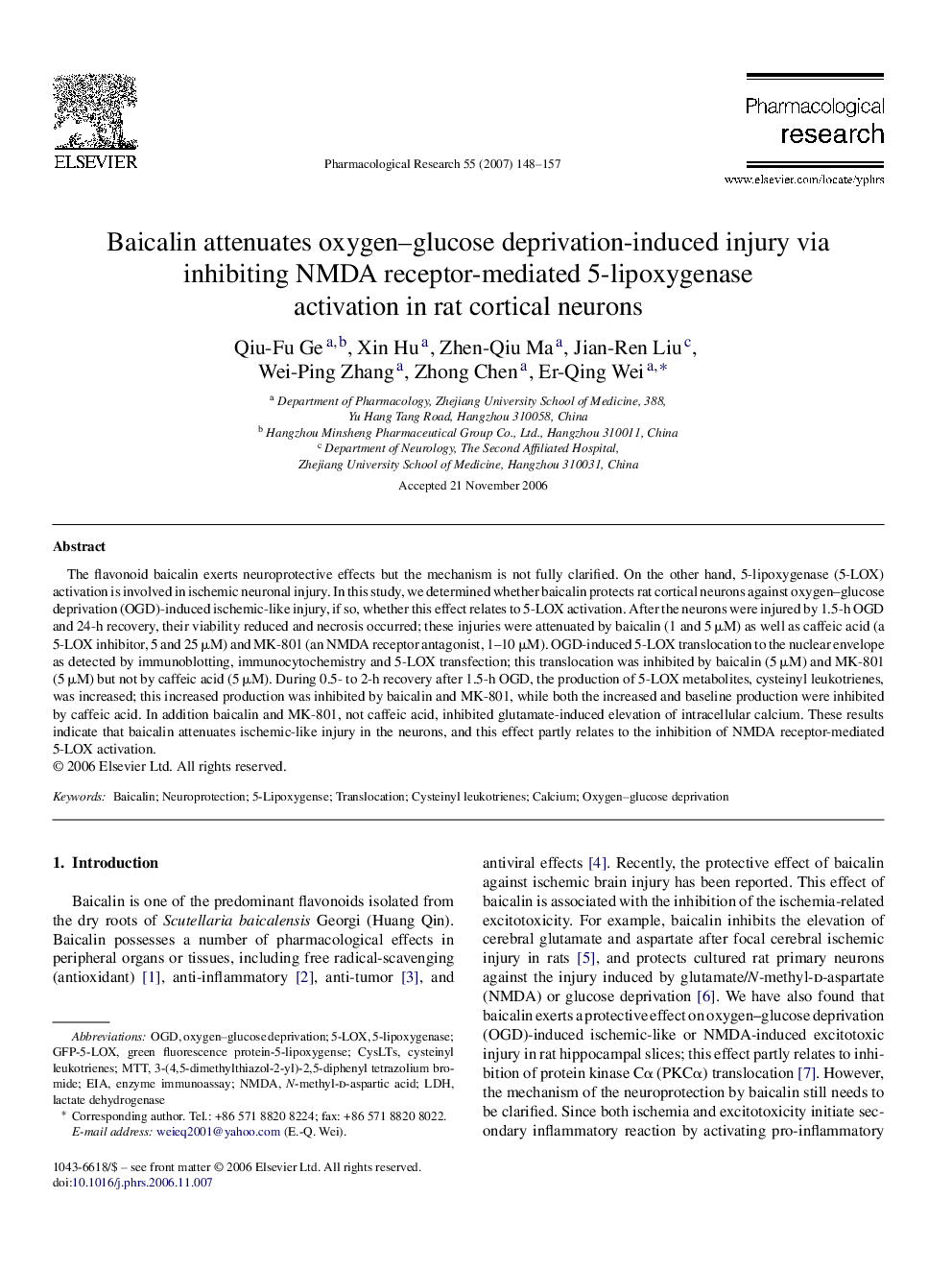| Article ID | Journal | Published Year | Pages | File Type |
|---|---|---|---|---|
| 2562985 | Pharmacological Research | 2007 | 10 Pages |
The flavonoid baicalin exerts neuroprotective effects but the mechanism is not fully clarified. On the other hand, 5-lipoxygenase (5-LOX) activation is involved in ischemic neuronal injury. In this study, we determined whether baicalin protects rat cortical neurons against oxygen–glucose deprivation (OGD)-induced ischemic-like injury, if so, whether this effect relates to 5-LOX activation. After the neurons were injured by 1.5-h OGD and 24-h recovery, their viability reduced and necrosis occurred; these injuries were attenuated by baicalin (1 and 5 μM) as well as caffeic acid (a 5-LOX inhibitor, 5 and 25 μM) and MK-801 (an NMDA receptor antagonist, 1–10 μM). OGD-induced 5-LOX translocation to the nuclear envelope as detected by immunoblotting, immunocytochemistry and 5-LOX transfection; this translocation was inhibited by baicalin (5 μM) and MK-801 (5 μM) but not by caffeic acid (5 μM). During 0.5- to 2-h recovery after 1.5-h OGD, the production of 5-LOX metabolites, cysteinyl leukotrienes, was increased; this increased production was inhibited by baicalin and MK-801, while both the increased and baseline production were inhibited by caffeic acid. In addition baicalin and MK-801, not caffeic acid, inhibited glutamate-induced elevation of intracellular calcium. These results indicate that baicalin attenuates ischemic-like injury in the neurons, and this effect partly relates to the inhibition of NMDA receptor-mediated 5-LOX activation.
